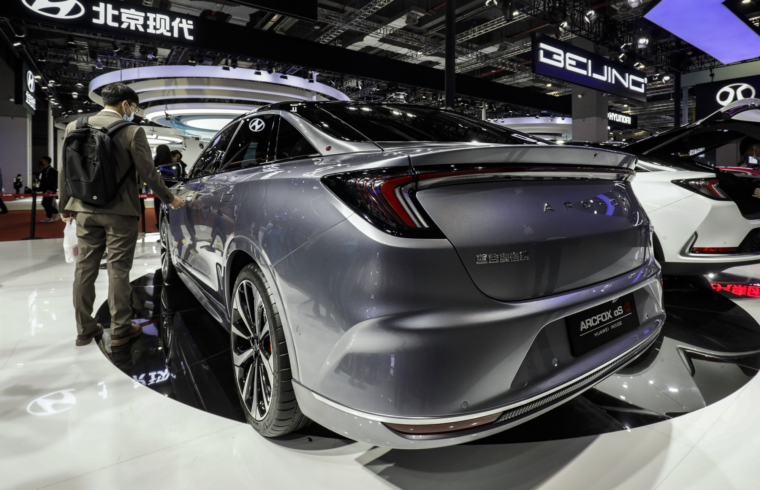Welcome to the Hyperdrive daily briefing, decoding the revolution reshaping the auto world, from EVs to self-driving cars and beyond.
News Briefs
China’s Youth Drive EV Design
Sometimes I find it hard to fathom why my teenager fancies the styles she does. It makes me wonder whether she’ll continue to surprise me when she’s shopping for a car in a few years.
According to China’s Ministry of Public Security, there were around 40 million people aged between 18 and 24 with a driver’s license as of December. And 76% of them don’t own a car. Vehicle ownership jumps to 35% for those older than 24, according to data analysis firm Trend Insight.
Millennials and Generation Z are playing a much bigger part in the world’s largest auto market. With marriage and kids on the agenda — Beijing recently
relaxed rules around how many children a couple can have — these young people are a “new emerging force in China’s passenger vehicle market,” analysts led by Zhou Lijun at the Yiche Research Institute wrote in a March report.
China has a tradition of forging tight family bonds, even after children grow up. These younger car buyers tend to have bigger budgets for higher-end cars based on income that includes their own, and their parents’. It’s a generation that also has no qualms buying local —
watch out Tesla and some of those storied European brands — and pays more attention to how their car looks. Having grown up with the internet, they’re attracted by things like connectivity and smart features.
Automakers are starting to respond.
Leap Motor’s LP-S01 is an all-electric sporty coupe with a sleek interior and bucket seats; Enovate’s ME7, an electric compact crossover, is marketed as “fitting perfectly into the intelligent modern life”; Arcfox’s Alpha-S claims it is among young buyers’ top choice; and GAC Group’s Aion S even has a portable karaoke unit that’s operated via the car’s battery. The message is loud and clear. To succeed, car companies must have models that appeal to this segment of the market.

The Arcfox Alpha-S electric sedan, shown here at April’s Shanghai Auto Show, is said to be a top choice among young buyers.
Photographer: Qilai Shen/Bloomberg
It’s also changing the way automakers in China, especially electric ones, advertise their cars.
Social media platforms like Douyin, as TikTok is known in Asia’s biggest economy, and Little Red Book, a trusted shopping site popular with young women, are frequently used to share photos and videos, as well as interact directly with customers.
Automakers and dealers must “pivot from a price-war strategy to a tech-war strategy, from a mainstream-focused market to a niche-focused market, from mid-to-low-end products to mid-to-high-end products,” Zhou said.
And in terms of China’s broader push to get more people buying electric, this change is also a good thing. Younger consumers rate protecting the environment more highly and, in a similar way to how they’ve helped older folk adopt smartphones, they’ll convince their elders that gasoline cars are a thing of the past.
I’ve
written before about my reservations when it comes to EVs. Who knows, perhaps it will be my daughter who ultimately brings me around.
Before You Go

Electric golf carts on a course at Miami Beach.
Photographer: Jeff Greenberg/Universal Images Group Editorial
Golf carts have found a new, hipper clientele. Rather than retirees looking for a way to get from tee to tee, increasingly the buyers are younger people using their carts for neighborhood trips. And the carts themselves have undergone a makeover. Many sit more than half-a-foot off the ground, with seating for up to six, peak horsepower approaching 30, and a price tag often north of $15,000. A growing number
also come with lithium-ion batteries like those found in full-size electric cars. “People are realizing that owning a golf car is a lot of fun,” says Jeff Tyminski, vice president of marketing and product management at manufacturer Club Car. “The pandemic accelerated this rise in the younger families who don’t play golf and are just using it as a lifestyle vehicle.”











